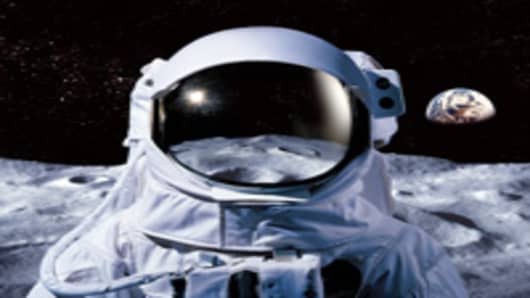Few things resonate with middle-age Americans as the space program. From the call to arms of President John F. Kennedy to the first landing on the moon to the midair explosion of the space shuttle Challenger.
Each generation has its game-changing technology, but space travel may have no equal. As stunning and unimaginable as the cross-continental railroad must have been in the era of Manifest Destiny, crossing a continent pales next to leaving a planet.
The early days of the space program was a marvelous mix of science, nationalism and adventure. The Apollo phase (1969-1976) gave new meaning to Ralph Kramden's cry to his wife, "To the moon, Alice," in the 1950s TV hit show "The Honeymooners."
The moon program was a relatively short-lived but action-packed period of success and failure.
The shuttle program, on the other hand, is now 30 years old, with its 135th — and almost certainly, final — flight on July 8.
Some say good riddance; others, onward and upward.
It's hard to determine if space exploration is worth its return on investment.
President Obama has no doubts, concluding that"for pennies on the dollar, the space program has fueled jobs and entire industries."
He wants to continue the quest in grand fashion. "We will partner with industry. We will invest in cutting-edge research and technology. We will set far-reaching milestones and provide the resources to reach those milestones."
Shuttle development, though expensive, managed to come in only modestly over budget, and despite its two fatal crashes is NASA's greatest hit.
NASA, of course, has had its failures, most recently, the Constellation program, or CxP, the defunct deep space exploration system that cost some $11 billion.
It's too soon to say anything about NASA's big debut project, the Mars Rover. Set to launch later this year, with a running cost of almost $2.5 billion, it is 25 percent over budget, according to a February 2010 audit by the U.S. Government Accountability Office.
The Mars Rover seemed an essential step in exploring the planet and the plunge into deep space. Deep space will take deep pockets, underscoring the need for collaboration with, and cash from, the private sector. The same goes with America's rivals and competitors.
As the exploration of space matures, the space race seems less of a race with an endpoint in sight than a collective journey into an endless darkness, a geo-scientific and -commercial pursuit bigger and bolder than anything before in peace or war.
Our special report, "NASA: The Next Generation",explores these issues, from the impact of the shuttle's end to the future of the agency and America's place in space.




